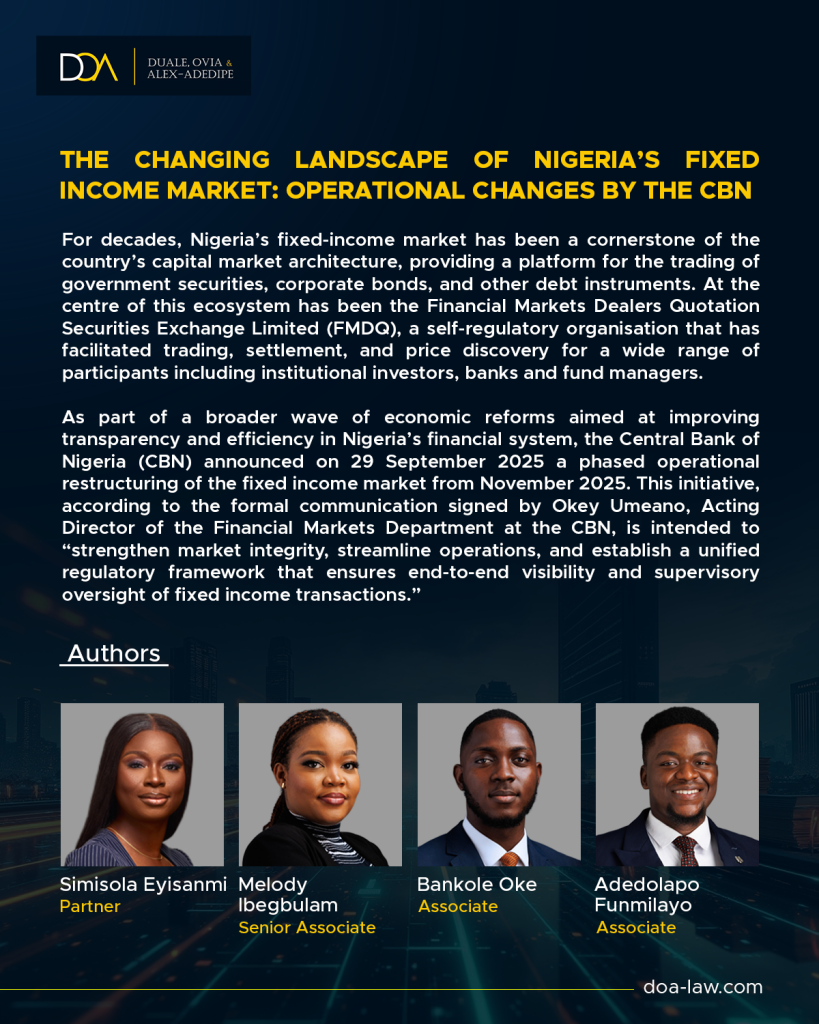For decades, Nigeria’s fixed-income market has been a cornerstone of the country’s capital market architecture, providing a platform for the trading of government securities, corporate bonds, and other debt instruments. At the centre of this ecosystem has been the Financial Markets Dealers Quotation Securities Exchange Limited (FMDQ), a self-regulatory organisation that has facilitated trading, settlement, and price discovery for a wide range of participants including institutional investors, banks and fund managers.
As part of a broader wave of economic reforms aimed at improving transparency and efficiency in Nigeria’s financial system, the Central Bank of Nigeria (CBN) announced on 29 September 2025 a phased operational restructuring of the fixed income market from November 2025. This initiative, according to the formal communication signed by Okey Umeano, Acting Director of the Financial Markets Department at the CBN, is intended to “strengthen market integrity, streamline operations, and establish a unified regulatory framework that ensures end-to-end visibility and supervisory oversight of fixed income transactions.”
The CBN’s proposed transition represents one of the most significant shifts in Nigeria’s fixed income market structure since the liberalisation of financial markets. It has sparked a lively debate, with some industry analysts welcoming it as a step toward transparency and efficiency, and others expressing concern about potential implications for market independence and competitiveness. As the discussion unfolds, much of the debate centres on what the transition means in practical terms; how the CBN’s new framework will differ from the existing one, what role existing institutions like FMDQ will continue to play, and what it could mean for market participants.
To appreciate the significance of this policy shift, it is necessary to understand how the
fixed income market currently operates and what the CBN’s proposed restructuring seeks
to change.
Read the full Publication here>>>>>






